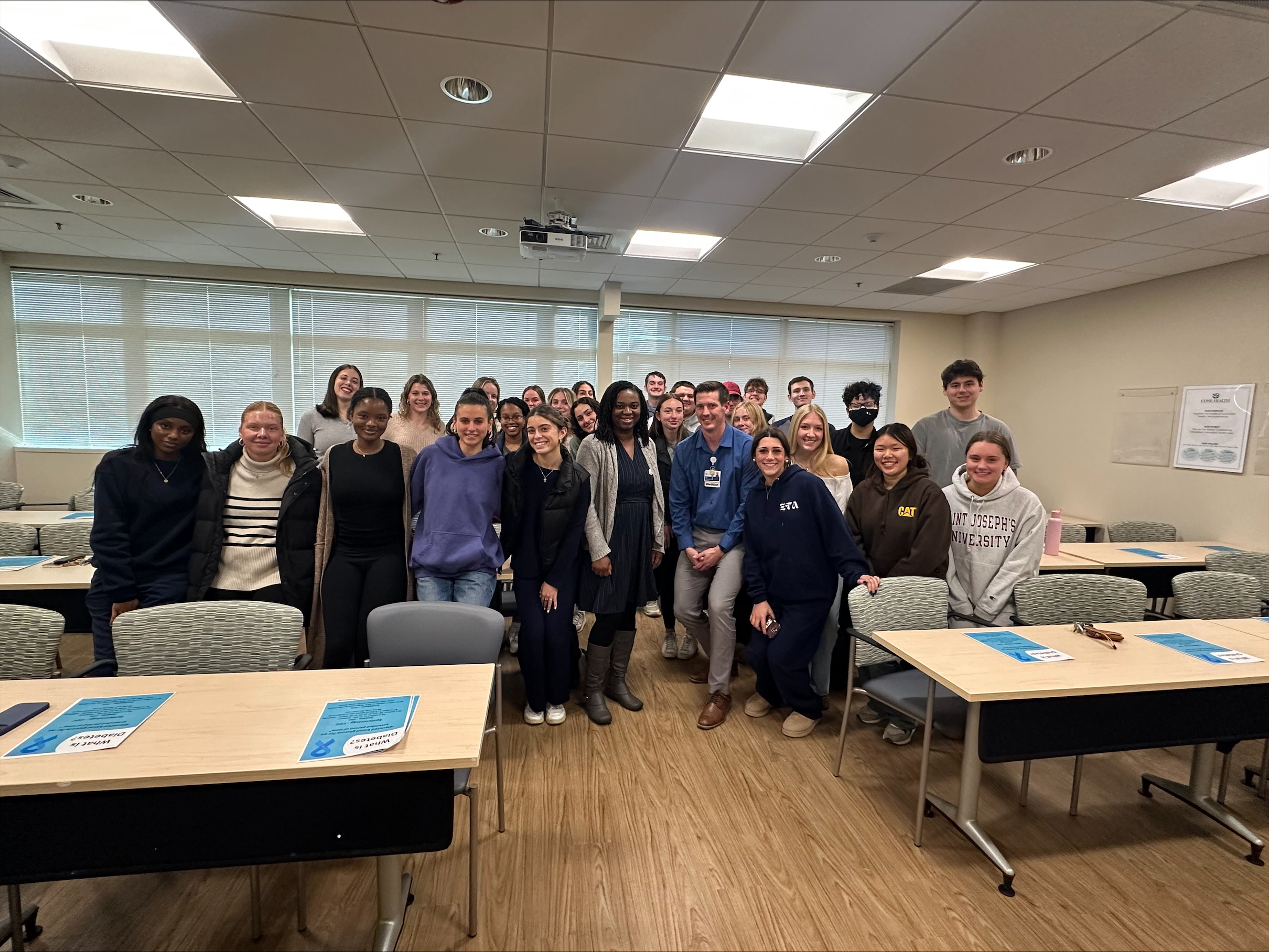Transforming Health: Students Explore Cutting-Edge Nutrition Strategies at Cone Health Center

Students in Assistant Professor Sandra Darfour-Oduro's Contemporary Health course recently gained invaluable insights into nutrition and wellness through an enlightening guest lecture by Phil Aubel, a seasoned registered dietitian from Cone Health's Nutrition and Diabetes department.
During the interactive session, Aubel shared his professional expertise, offering students a comprehensive look into the critical role of nutrition in maintaining optimal health. His presentation bridged theoretical knowledge with real-world practical applications, providing students with a deeper understanding of dietary strategies and their impact on overall well-being.
The guest lecture not only enriched the students' academic learning but also provided a unique opportunity to engage directly with a healthcare professional who brings years of practical experience to the classroom. By connecting academic concepts with professional insights, the session exemplified the course's commitment to providing students with comprehensive and dynamic health education.
Professor Darfour-Oduro's Contemporary Health course continues to demonstrate its innovative approach to health education by bringing industry experts like Phil Aubel to share their knowledge and inspire future health professionals.

